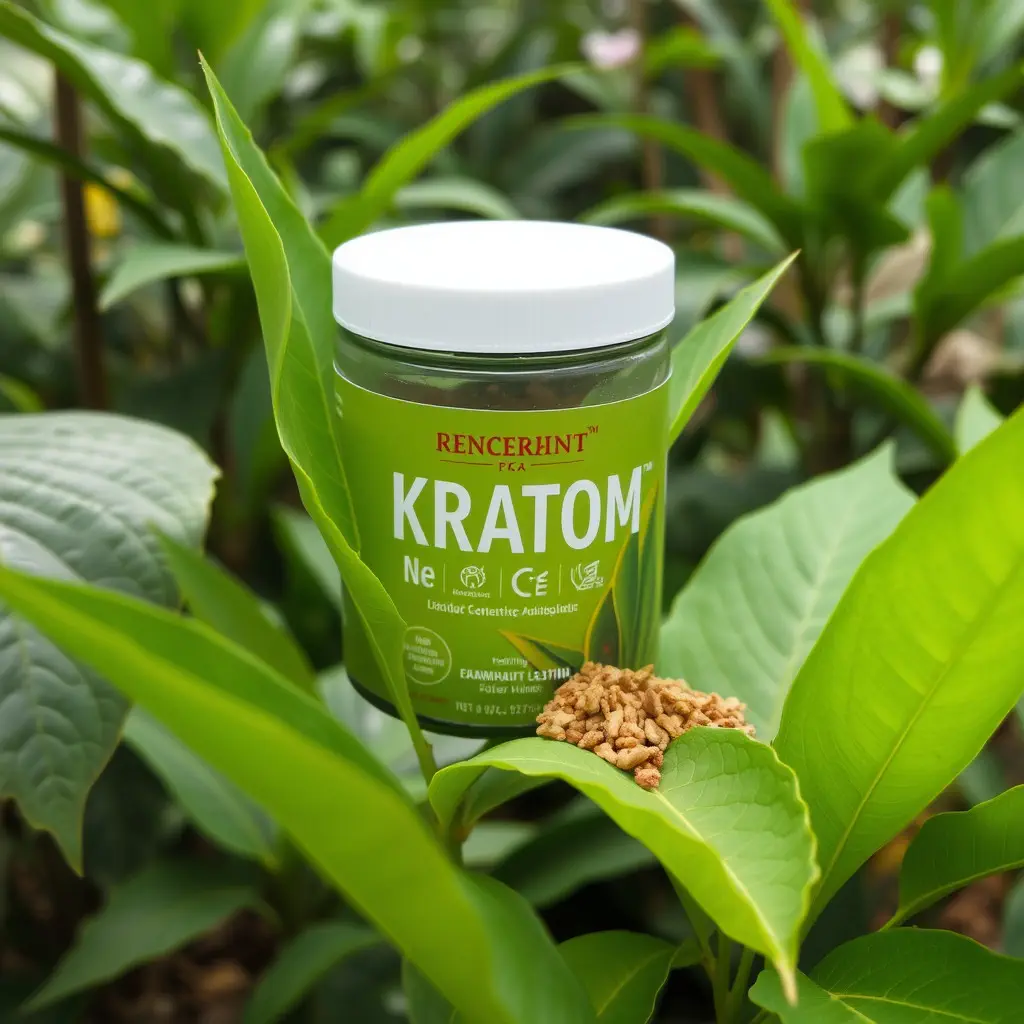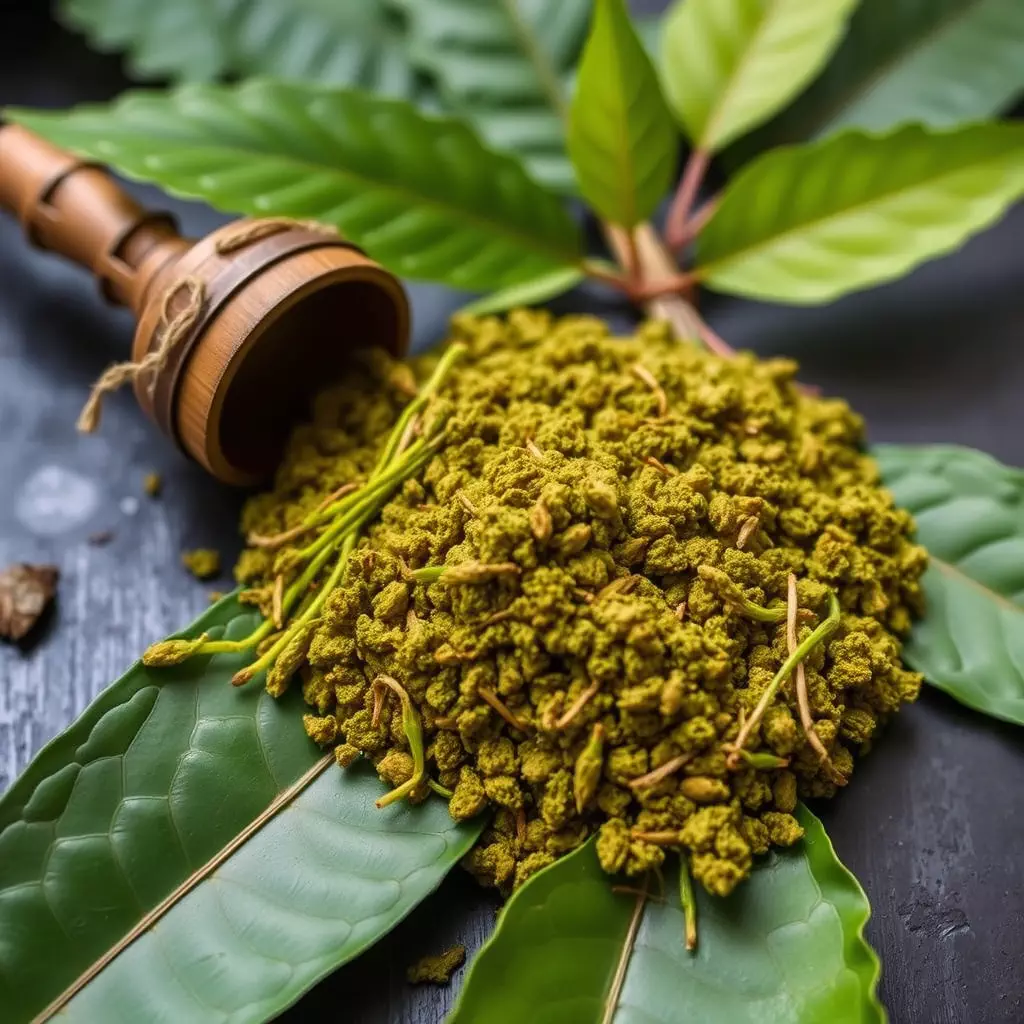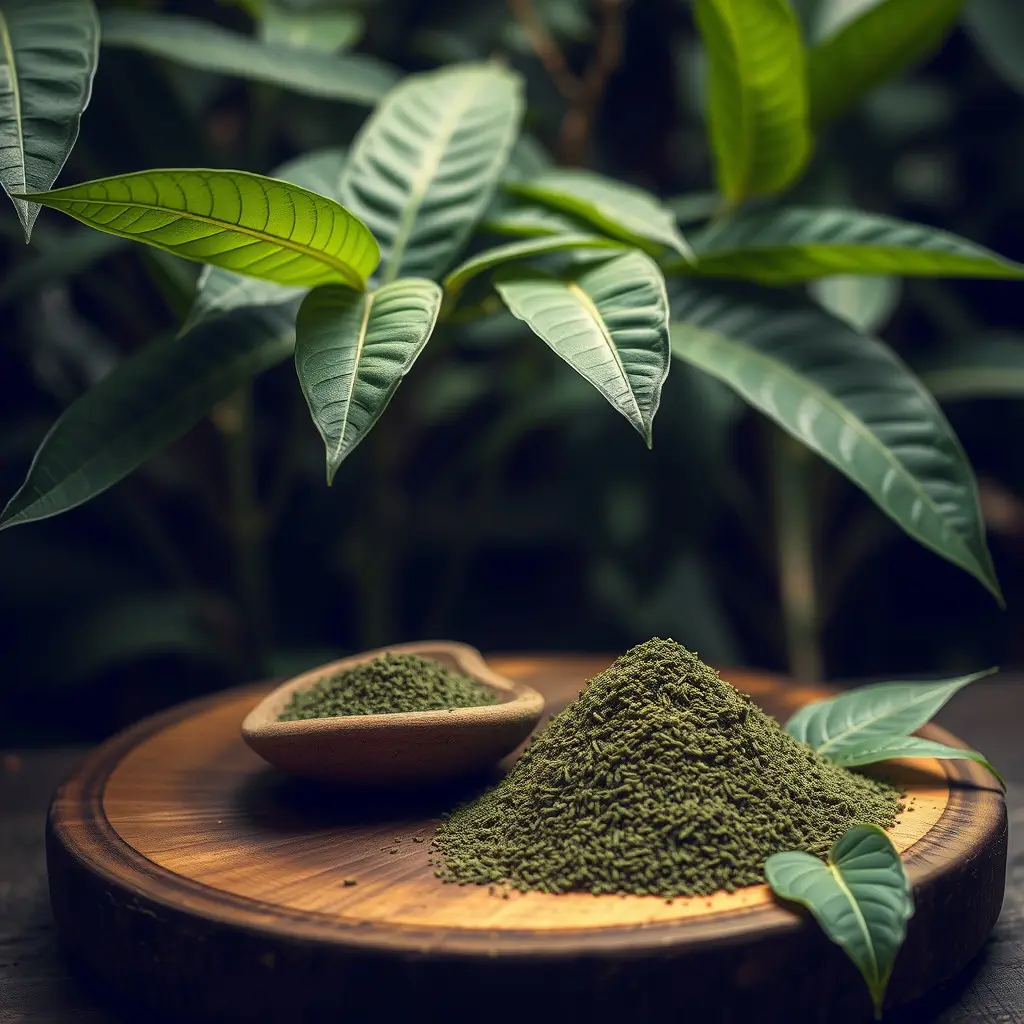As of early 2023, kratom (Mitragyna speciosa) is a subject of legal ambiguity in Texas. Although not explicitly banned by the state, its legality is complex due to federal regulations and a mosaic of local ordinances. The Texas Department of State Health Services categorizes kratom under the Texas Controlled Substances Act but not as a controlled substance, which differs from prescription opioids. This classification allows for a legal gray area where kratom can be sold in certain areas, yet cities like San Antonio have enacted bans on its sale and use. The varying local laws necessitate that individuals interested in using kratom for pain relief or endurance enhancement must understand the specific regulations within their city or county to comply with the law. It's essential for consumers and vendors alike to stay informed about the evolving legal status of kratom in Texas, as it is a dynamic landscape with significant implications for those considering its use. Always consult healthcare professionals and verify local laws before purchasing or consuming kratom to avoid legal repercussions.
Kratom, a tropical evergreen tree native to Southeast Asia, has garnered attention for its potential impact on physical endurance and performance. As an increasingly popular natural supplement, its legality and use within the United States, particularly in Texas, present a unique context for exploration. This article delves into the intricacies of kratom’s status in Texas, examining its origins, legal framework, and how it compares against federal regulations. We will also investigate the scientific basis for kratom’s effects on endurance, focusing on key alkaloids like mitragynine and 7-hydroxymitragynine, and provide guidance on safe use to optimize stamina and performance. With a growing body of research and anecdotal evidence supporting its benefits, understanding the nuances of kratom’s legal standing and responsible usage is crucial for those seeking to enhance their endurance naturally.
- Understanding Kratom and Its Legal Status in Texas
- – Kratom's Origins and Usage
- – The Legality of Kratom in Texas: Laws and Regulations
Understanding Kratom and Its Legal Status in Texas

Kratom, a tropical tree native to Southeast Asia, has garnered attention for its potential effects on energy levels and pain relief, which have led many to explore it as a natural supplement for endurance improvement. Mitragyna speciosa, commonly known as kratom, contains alkaloids that interact with the body’s opioid receptors, offering both stimulant and sedative properties depending on the dosage. As its popularity has grown in the United States, so too have questions about its legal status across different states.
In Texas, the legal standing of kratom is subject to ongoing debate and legislative action. As of my knowledge cutoff in 2023, kratom remains legal within the state’s borders; however, this status may be influenced by federal regulations and local ordinances. The Texas Department of State Health Services classifies kratom as an uncontrolled substance under the Texas Controlled Substances Act. This classification means that it is not explicitly banned in the same way as controlled substances like prescription opioids. However, cities and counties within Texas may have their own ordinances or regulations regarding the sale and use of kratom, which can vary from one jurisdiction to another. Consumers interested in using kratom for endurance purposes should be aware of these local laws and stay informed as legal status can change with new legislation. It is always recommended to consult with a healthcare provider before incorporating kratom into any health regimen, given its potential interactions with other substances and its regulatory ambiguity. Understanding the nuanced legal landscape of kratom in Texas is crucial for anyone considering its use as part of their endurance strategy or overall wellness plan.
– Kratom's Origins and Usage

Kratom, a tropical deciduous tree native to Southeast Asia, particularly Thailand, Indonesia, and Malaysia, has been a subject of interest for its medicinal properties. Scientifically known as Mitragyna speciosa, kratom leaves have been traditionally used by locals for centuries. The indigenous peoples chewed the leaves or brewed them into a tea to alleviate fatigue, enhance stamina, and increase productivity in physically demanding tasks. In recent years, kratom has gained attention worldwide due to its purported effects on mood, energy levels, and pain relief. Its active compounds, mitragynine and 7-hydroxymitragynine, interact with the body’s opioid receptors, providing stimulating or sedative effects depending on the dosage. As kratom has become more mainstream, questions about its legal status have arisen, including “Is kratom legal in Texas?” In the United States, the legal landscape of kratom is complex and varies by state. As of my knowledge cutoff in 2023, kratom is not explicitly controlled at the federal level, leaving states to enact their own regulations. In Texas, kratom is legal, but it’s subject to certain restrictions and purity standards set forth by the Texas Department of State Health Services. It’s important for consumers to stay informed about the evolving legal status of kratom, as state laws can change, potentially affecting its accessibility and use. Users interested in incorporating kratom into their wellness regimen for endurance improvement should seek out reputable sources and adhere to local regulations.
– The Legality of Kratom in Texas: Laws and Regulations
In Texas, the legality of kratom has been a subject of ongoing debate and legislative scrutiny. As of my knowledge cutoff in early 2023, kratom is not explicitly illegal at the state level; however, its regulatory status can be complex due to shifting interpretations of existing laws. The Texas Health and Safety Code classifies kratom as a substance in the same category as prescription drugs, which means it cannot legally be sold as a dietary supplement. Despite this classification, kratom products remain available for purchase at certain retail outlets and online stores within the state. It’s important for consumers to be aware of their local jurisdiction’s stance on kratom, as some cities and counties in Texas have enacted their own ordinances that either restrict or ban the sale and consumption of kratom products. For instance, San Antonio passed an ordinance banning the sale of kratom within its city limits. This patchwork of regulations underscores the importance for both users and vendors to stay informed about the evolving legal landscape regarding kratom in Texas. Users should always verify the most current laws and regulations before purchasing or consuming kratom to ensure compliance with state and local statutes.
In conclusion, the exploration of kratom’s role in endurance improvement has shed light on its potential benefits for those seeking enhanced stamina. With a clear understanding of kratom’s origins and usage, alongside the current legal status of kratom in Texas—where it is legally available but subject to certain regulations—individuals can make informed decisions about its use. It is crucial for potential users to navigate the laws and regulations governing kratom in Texas to ensure compliance with state legislation. As research continues to evolve, the implications of kratom for endurance athletes and enthusiasts may become more pronounced, potentially influencing both personal well-being and competitive performance.






